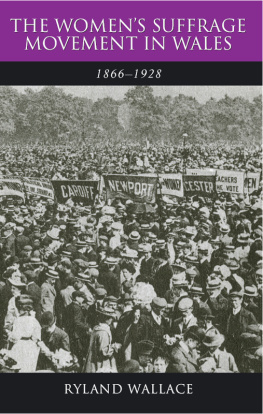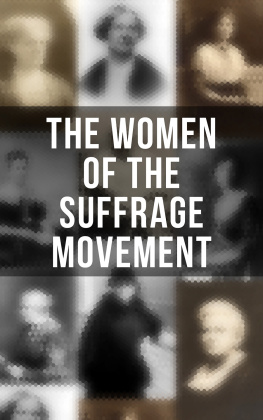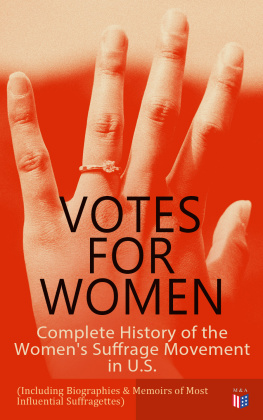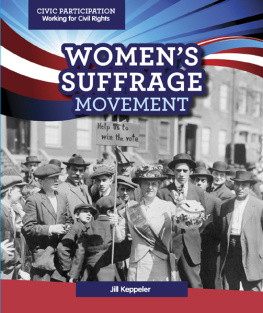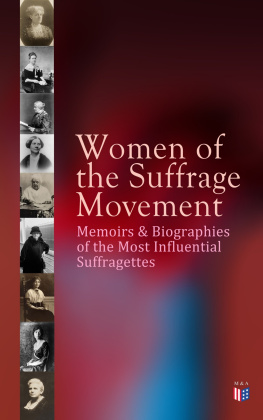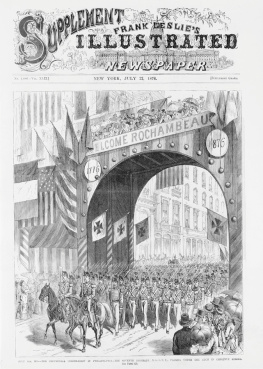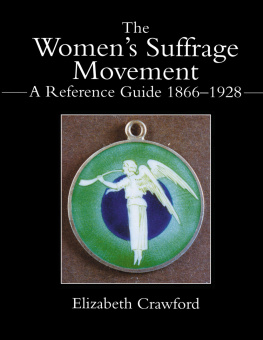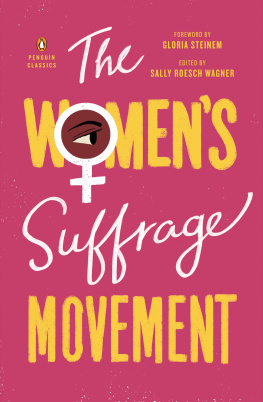Contents
Print Page Numbers

STUDIES IN WELSH HISTORY
Series editors
RALPH A. GRIFFITHS CHRIS WILLIAMS ERYN M. WHITE
THE WOMENS SUFFRAGE MOVEMENT IN WALES, 18661928

Banner of the Newport WSPU, from the collection of Newport Museum and Art Gallery.
THE WOMENS SUFFRAGE MOVEMENT IN WALES, 18661928
by
RYLAND WALLACE

CARDIFF
UNIVERSITY OF WALES PRESS
Ryland Wallace, 2009
First published in paperback, 2018
All rights reserved. No part of this book may be reproduced in any material form (including photocopying or storing it in any medium by electronic means and whether or not transiently or incidentally to some other use of this publication) without the written permission of the copyright owner. Applications for the copyright owners written permission to reproduce any part of this publication should be addressed to the University of Wales Press, 10 Columbus Walk, Brigantine Place, Cardiff, CF10 4UP.
www.uwp.co.uk
British Library Cataloguing-in-Publication Data.
A catalogue record for this book is available from the British Library.
ISBN 978-1-7868-3327-3
e-ISBN 978-1-7868-3329-7
The right of Ryland Wallace to be identified as author of this work has been asserted by him in accordance with Sections 77, 78 and 79 of the Copyright, Designs and Patents Act 1988.
The publisher has no responsibility for the persistence or accuracy of URLs for any external or third-party internet websites referred to in this book, and does not guarantee that any content on such websites is, or will remain, accurate or appropriate.
Cover illustration: Great Votes for Women Demonstration in Hyde Park, Sunday, 21 June 1908 Museum of London
Since the foundation of the series in 1977, the study of Waless history has attracted growing attention among historians internationally and continues to enjoy a vigorous popularity. Not only are approaches, both traditional and new, to the study of history in general being successfully applied in a Welsh context, but Waless historical experience is increasingly appreciated by writers on British, European and world history. These advances have been especially marked in the university institutions in Wales itself.
In order to make more widely available the conclusions of original research, much of it of limited accessibility in postgraduate dissertations and theses, in 1977 the History and Law Committee of the Board of Celtic Studies inaugurated this series of monographs, Studies in Welsh History. It was anticipated that many of the volumes would originate in research conducted in the University of Wales or under the auspices of the Board of Celtic Studies, and so it proved. Although the Board of Celtic Studies no longer exists, the University of Wales continues to sponsor the series. It seeks to publish significant contributions made by researchers in Wales and elsewhere. Its primary aim is to serve historical scholarship and to encourage the study of Welsh history.
The origins of this study lie in my earlier book, Organise! Organise! Organise! A Study of Reform Agitations in Wales, 18401886, which was published by the University of Wales Press in 1991. This included a chapter on Womens rights, which focused on the early womens suffrage movement and the contagious diseases campaign. Further research into womens suffrage in late nineteenth and early twentieth-century Wales beckoned as a natural development. It continued the theme of extra-parliamentary agitation and, moreover, the subject was one which had scarcely been touched by historians of Wales.
I embarked on the research with the notion, based at that time on no substantial body of evidence, that the suffrage movement made little impression on Wales and that what I should uncover would be minimal. I could not have been more wrong, and the subsequent enterprise has proved to be one of unforeseen scale and scope. To begin with, I dived into the early issues of The Suffragette newspaper of 1912. Turning the pages of the bulky volume in the Bodleian Library, Oxford, I was immediately startled by the weekly reports of activity all over the country. As I continued my investigations into the movements archives, I found avenues opening in many directions and numerous potential lines of enquiry presented themselves. A major study proved inescapable.
This book has been a long time in the making. Full-time teaching and summers dominated by cricket have led to lengthy periods of neglect. At the same time, the sheer wealth of primary source material surviving in libraries and record offices around the country has made research into the theme labour intensive and time consuming. Information for the study of womens suffrage in Wales is abundant but invariably lies tucked away in scattered archives and in a variety of newspapers and periodicals.
My researches have left me indebted to the librarians and archivists at the various institutions listed in the bibliography. I am grateful to the staff at my local public libraries in Abergavenny and Brecon for patiently dealing with my many requests for inter library loan material; my daughter, Laura, did likewise while at university. I thank my sister, Diana, for conveniently living in north London and providing me with food and shelter on my countless visits to libraries and other institutions over the years. I thank Sue Baylik and Graham Strange for similar hospitality.
Professor Geraint H. Jenkins, director of the Centre for Advanced Welsh and Celtic Studies in Aberystwyth, carefully read a draft of the first chapter and offered valuable advice. I am also grateful to the editors of the Studies in Welsh History series, Emeritus Professor Ralph A. Griffiths, Professor Chris Williams and Dr Eryn White, for their thorough reading and comments on the original manuscript. The errors and shortcomings that remain are, of course, my own responsibility.
I am particularly indebted to Professor Ralph Griffiths for his considerable support and encouragement to this work; certainly, before contacting him, my attempts at gaining publishers interest had proved fruitless. I also thank those members of staff at the University of Wales Press especially Sarah Lewis, Elin Lewis, Sin Chapman and Bethan James who so efficiently and considerately guided the volume through the various stages of publication. Teleri Williams proved a splendid copy-editor. Rachael Anderton (Newport Museum and Art Gallery) and Katrina Coopey (Cardiff Central Library) were very helpful in my pursuit of illustrations.
Finally, I gratefully acknowledge the financial support of 870 towards research costs awarded to me by the British Academy.
NEWSPAPERS AND PERIODICALS
| ASR | Anti-Suffrage Review |
| CC | The Common Cause |
| CDH | Carnarvon and Denbigh Herald |
| CN | Cambrian News |
| CT | Cardiff Times |
| ER | Englishwomans Review |
| NWC | North Wales Chronicle |
| SWDN | South Wales Daily News |
| SWDP | South Wales Daily Post |
| SWWP | South Wales Weekly Post |
| VW | Votes for Women |
| WF | Womens Franchise |
| WM | Western Mail |
| WSJ | |

